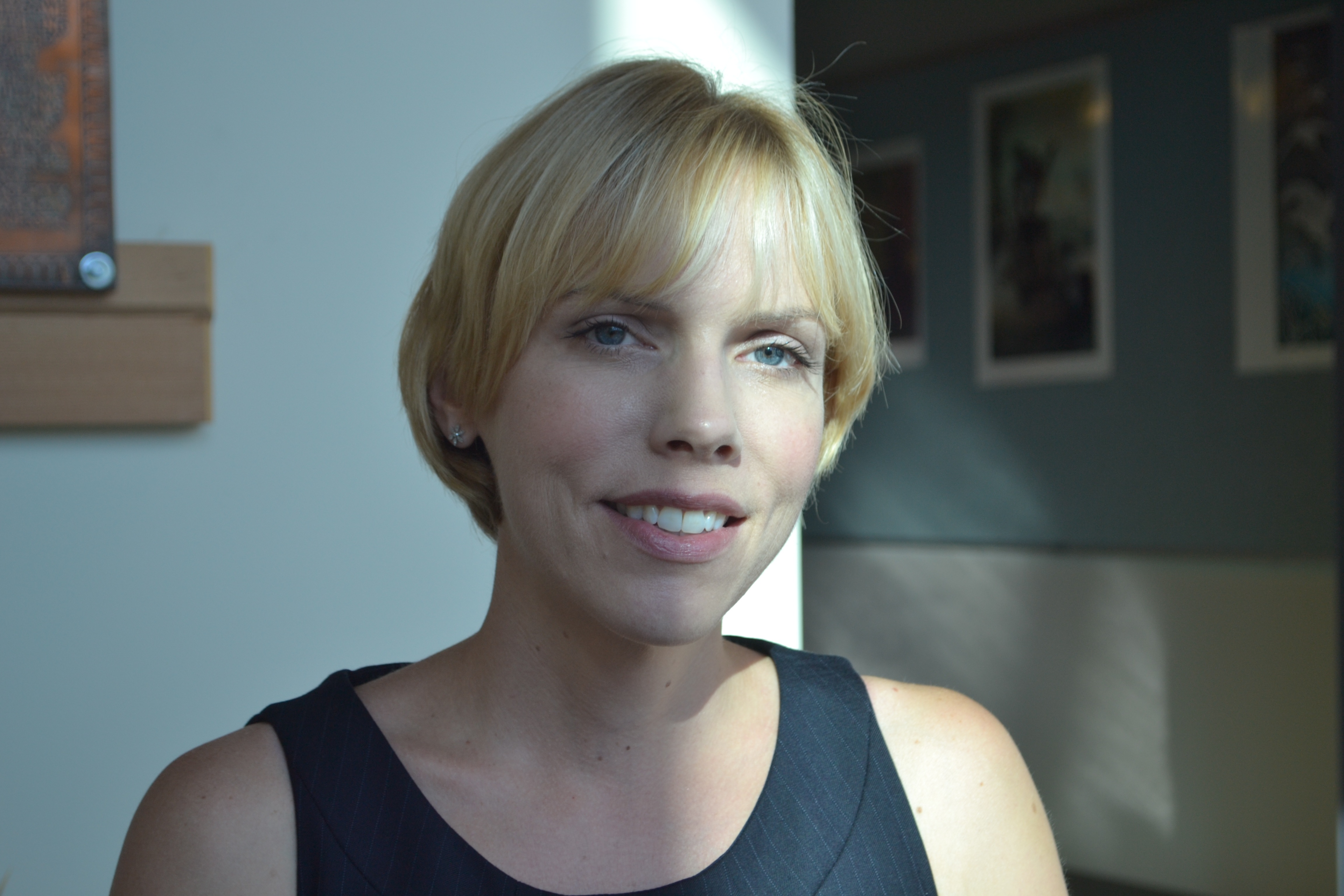 "She's like the iconic voice of the London Underground," one Seattle parent remarked. "During the warm weather, when windows are open, I can always tell when she's going to call, because I hear the progression of ringing telephones down my block."
"She's like the iconic voice of the London Underground," one Seattle parent remarked. "During the warm weather, when windows are open, I can always tell when she's going to call, because I hear the progression of ringing telephones down my block."
"She" is the Seattle Public Schools "robocall lady." With a smooth, reassuring voice, she welcomes you back to school, lets you know if schools are closed due to snow, alerts you in the case of an emergency and reminds you of upcoming holidays, early dismissal days and special events.
She is a real person.
Behind the voice
The robocall lady's name is Paige Hatcher. She's been a communications specialist with Seattle Public Schools (SPS) for three years. She worked in enrollment before that and once did administrative work for a steel fabricating company.
A self-described introvert, Hatcher sees the irony in playing such a public role.
"My number one fear is public speaking," she admits. "Now, I end up speaking to 50,000 families."
SPS began using the robocall system in 2009 and sees it as a crucial communication tool.
Hatcher takes her responsibilities as the voice of Seattle Public Schools seriously."It's nerve-racking the first time you do it, " she says of making a call.
"I try to gauge whether an announcement is important enough to risk intrusion," she stresses. "I try to sound calm and friendly. I really try to keep the messages short."
Making the right call
School robocalls received some unwanted publicity in 2011, when a Maryland parent, annoyed that he had been awakened by a 4:30 a.m. call announcing a snow day, got the telephone numbers of his community's nine school board members and reverse robocalled them at 4:30 the next morning.
Hatcher acknowledges that snow closure calls are the most challenging, because she has to determine the best time of morning to alert families. Because of different school start times, parents of secondary school students need the information sooner than parents of elementary school students.
"Once, I timed the call for 5:30 a.m.," Hatcher remembers. "As soon as I hit the send button, I thought, what have I done?" Now, she aims for calls to go out at 6:15 a.m. The best-case scenario is to inform parents of school closures the night before. "I still remember how much fun snow days were when I was a kid," she says. "But I realize they can be traumatizing for parents."
How it works
SPS uses a company called School Messenger to place its calls through an Internet application. After logging into the School Messenger system, Hatcher follows three easy steps: She chooses the list of contacts she wants to reach (these can be based on language preference, grade or be district-wide); she designates the phone number she wants to place the call from; and after the School Messenger system calls that number, she records the message.
The calls are placed through the company's call centers, located in various parts of the U.S. School Messenger pulls the contact information from SPS's student information system, which is updated nightly. Security protocols are in place, in compliance with the Department of Education's Family Educational Rights and Privacy Act (FERPA).
The first voice you hear belongs to a School Messenger employee. It informs you that Seattle Public Schools is calling with a message for its families. But the voice also is able to detect whether a live person has answered the phone, in which case you will be prompted to press 1 to listen to the message. If an answering machine has picked up, the system will leave the message.
Normally, Hatcher places the calls from her office, a quiet oasis with strands of soft white lights festooned around her desk and computer. She writes out her script, then types it so that it can also go out as an email message.
Sometimes, such as in the case of a snow day, Hatcher has to make the call from home. During the recent teacher-contract negotiations that threatened to delay the start of school, Hatcher had to alert families to the situation while attending a wedding in a remote location with spotty wireless phone service.
When they register their children for school, Seattle families can designate their preferred language of communication. A strong supporting cast translates robocalls for non-English speaking communities. It includes:
Michael Chan, Cantonese; Miguel Castro Sandra Henricks, Bernardo Ruiz and Superintendent Jose Banda, Spanish; Mohamed Roble and Hussein Ismail, Somali; Narcita Eugenio and Estrella DeLaCruz, Tagalog; Kim Tran and Ken Tran, Vietnamese.
In addition to her robocall duties, Hatcher writes newsletters to principals and helps maintain the staff page at the John Stanford Center, as well as the District's internal and external websites.
But making robocalls is her favorite part of the job.
Though initially nervous about being interviewed, Hatcher was pleased to know that people are curious about her. "In the John Stanford building, you don't have many opportunities to see the people you work for and to know you are making a difference to families."
Here is Paige Hatcher's personal message to Seattle families:
Alison Krupnick is ParentMap's education editor.





